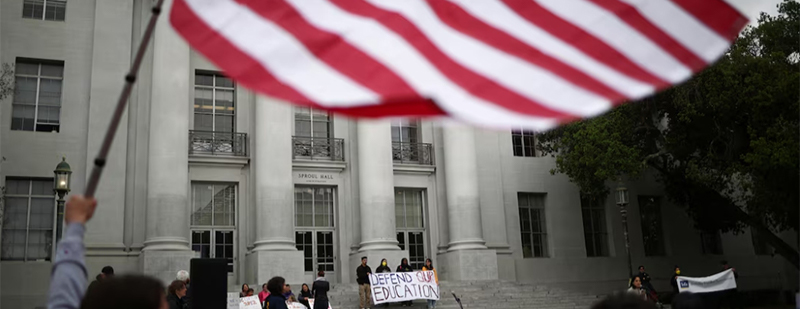-
周波:气候危机的警示,中美应确保共存而非极限竞争
最后更新: 2021-11-26 11:26:54我将这称为“2030时刻”,它将比“史普尼克号时刻(Sputnik moment)”更具划时代意义。当时苏联发射了第一颗在轨人造卫星,令美国人目瞪口呆。“2030时刻”也会比联合国秘书长安东尼奥·古特雷斯(Antonio Guterres)称为“1945年时刻”的冷战开始时刻更有意义。
对中国来说,“2030时刻”标志着历史的回归,仿佛穿越时空隧道与我们昔日盛世重新相连。对美国来说,这将是该国自1898年美西战争成为全球大国以来,第一次必须接受与对手相互确保共存。而对全世界来说,“2030时刻”代表着常识的回归:国家兴衰更替,所谓民主与专制之间的斗争不过是一个神话。

“史普尼克号时刻”。来源:亚马逊
翻译:中国论坛 张佳奕
校译:中国论坛 韩桦
With the climate crisis threatening us all, this is a time for US-China coexistence, not competition
The joint pledge of China and the United States at the COP26 conference in Glasgow to cut emissions is like an oasis in a desert, considering their badly strained ties. But it shouldn’t be a surprise. In facing a common threat looming large over their own survival, major powers know when they need to act together.
The problem of climate change raises a question: if indeed time is running out – the most important consensus of the conference – do we still have time to compete against each other?
If human nature is intrinsically flawed so that people will only stop jostling each other right before doomsday, then climate change provides us with a way of looking at our relations from a perspective of coexistence: we cooperate to survive, we don’t survive to compete.
Coexistence is not easy, especially between two giants of almost equal weight. During the Cold War, strategic equilibrium between the two superpowers was eventually achieved through the doctrine of mutually assured destruction.
Admittedly, what is happening today is quite different from the Cold War if one thinks of the colossal amount of economic and other interdependence between China and the US. But, almost like in the early days of the Cold War, what we are seeing is ever intensifying competition to the extent that US President Joe Biden suggested to Chinese President Xi Jinping that they “establish a commonsense guardrail” in a virtual summit on November 16.
The question is how. Both China and the US have vowed not to slide into a new Cold War. But there is no guarantee of that.
Presumably, coexistence with the US is easier for China, not only because China’s time-honoured foreign policy is called “five principles of peaceful coexistence”, but also because – apart from what China views as its sovereign rights over Taiwan, and in the East China Sea and the South China Sea, that it has to defend – there is no possibility of a military conflict between China and the US elsewhere.
Against a bigger backdrop, Beijing does not wish to challenge the international system from which it has benefited tremendously for decades.
Coexistence with Beijing looks more like a bitter fruit for Washington to swallow, given that the US views the relationship very much like a duel between democracy and autocracy.
Ever since the establishment of diplomatic ties between the US and China, it has not been uncommon for American presidents to say how the US wishes for China to be strong and prosperous, but there has been an undertone, which was eventually voiced by US vice-president Mike Pence at the Hudson Institute in 2018: “After the fall of the Soviet Union, we assumed that a free China was inevitable”.
This hope has been dashed. China is getting much stronger, but is still different. During the Trump administration, the US took drastic measures to attack China, ranging from the trade war to increased US navy operations in Chinese waters in the South China Sea and lifting almost all legal restrictions on exchanges with Taiwan.
The Biden administration’s policy towards China is very much a continuation of Trump’s great power rivalry. But it seems things are starting to change.
In a recent interview with CNN’s Fareed Zakaria, US National Security Adviser Jake Sullivan said: “One of the errors of previous approaches to policy towards China has been a view that through US policy, we would bring about a fundamental transformation of the Chinese system. That is not the object of the Biden administration.” He even mentioned “coexistence”.
Even if the Biden-Xi summit signals a watershed, in a way, coexistence between Beijing and Washington today is more difficult than it was between Washington and Moscow during the Cold War. Unlike during the Cold War, when coexistence between two superpowers was marked by clearly defined spheres of influence, there aren’t even buffer zones between China and the US.
The US Navy regularly sends ships to sail through the Taiwan Strait and near the Chinese islands and rocks in the South China Sea while asking the Chinese People’s Liberation Army ships to keep a safe distance. Such brinkmanship risks veering into exactly what Biden hopes to avoid – a conflict, intended or unintended.
To stare into the abyss helps one to step back. Should a conflict occur, with the possible exception of Japan and Australia, no American ally would wish to take the US’ side. One can hardly imagine that Thailand, an American ally and a friend of China, would follow the US into a war with China under any circumstances.
If the US has succeeded in sweet-talking Australia into antagonising China, as was proved with the Aukus submarine deal, it has lost the trust of France, another important ally. The immediate outcome is zero, the long-term benefit is inconsequential.
The damage done by the Afghan war to the image and credibility of the US can only be matched by the Vietnam war. Some people have argued that America will rise from the ashes and prosper like it did 10 years after the Vietnam war. Perhaps it will. But even if that is so, there will still be the moment, maybe even before 2030, when China surpasses the US in terms of gross domestic product as the largest economy in the world.
I call it the “2030 moment”. It will be more epochal than the “Sputnik moment”, when the Soviets stunned the Americans by sending the first satellite to orbit, or what UN chief Antonio Guterres described as the “1945 moment” referring to the beginning of the Cold War.
For China, the “2030 moment” marks a return of history, a reconnection through a time tunnel with the heydays of the past. For America, it will be the first time that the country has to accept mutually assured coexistence with a rival since it became a global power after the war with Spain in 1898. And, for the whole world, it represents the comeback of common sense: nations rise and fall, the story of the rivalry between democracy and autocracy is a myth.
本文系观察者网独家稿件,文章内容纯属作者个人观点,不代表平台观点,未经授权,不得转载,否则将追究法律责任。关注观察者网微信guanchacn,每日阅读趣味文章。
-
本文仅代表作者个人观点。
- 责任编辑: 沈玉萌
-

挪威记者调查世界杯劳工问题时被捕,卡特尔回应
2021-11-26 11:25 -

韩总统候选人:韩国不该被迫站队,将开展中美平衡外交
2021-11-26 11:18 三八线之南 -

澳公司喊冤:要在阿富汗建大麻加工厂的不是我们
2021-11-26 11:01 阿富汗 -

南非出现“迄今为止最糟糕”新变种:突变超预期
2021-11-26 10:33 新冠肺炎抗疫战 -

“闪辞”第二天,瑞典首位女首相再被提名
2021-11-26 10:07 欧洲乱局 -

外媒:刚果(金)一采矿营地遇袭,两名中国公民遇难
2021-11-26 09:11 非洲之窗 -

美国新增确诊36314例、死亡462例
2021-11-26 07:52 新冠肺炎抗疫战 -

印度总和生育率降至2.0,首次低于更替水平
2021-11-26 06:58 印度惊奇 -

捷克总统上午刚出院,下午即因新冠阳性被送回
2021-11-26 06:49 新冠肺炎抗疫战 -

俄罗斯克麦罗沃州煤矿事故已致52死
2021-11-26 06:48 安全生产 -

黑人男子跑步被枪杀案宣判:3名白人犯谋杀罪
2021-11-25 22:57 美国一梦 -

“人权组织”阻挠未果,中国警官当选国际刑警组织执委
2021-11-25 22:49 -

日增确诊数创7个月新高,法国防疫再加码
2021-11-25 22:35 法国见闻 -

我驻立陶宛大使馆:因技术原因,领事业务暂停
2021-11-25 21:58 -

美施压洪都拉斯保持现状,外交部:门罗主义幽灵一直在拉美徘徊
2021-11-25 21:47 美国一梦 -

所罗门群岛华人商铺遭袭,中方:支持止暴制乱
2021-11-25 21:38 -

卡扎菲之子赛义夫被取消竞选总统资格
2021-11-25 21:29 阿拉伯之冬 -

韩国货运工会5000多人罢工,希望政府上调运费价格
2021-11-25 21:20 三八线之南 -

“你们将制造业转移给中国,然后说中国碳污染”
2021-11-25 21:17 -

让近600万人排队就医,“英国的骄傲”怎么了?
2021-11-25 21:00 观察者头条
相关推荐 -
 俄军宣布完全收复库尔斯克,乌方否认 评论 50
俄军宣布完全收复库尔斯克,乌方否认 评论 50 “强度极大”!伊朗一港口突发爆炸,已致5死超500伤 评论 103
“强度极大”!伊朗一港口突发爆炸,已致5死超500伤 评论 103 大错特错!“给特朗普献计的人,压根不懂中国” 评论 154
大错特错!“给特朗普献计的人,压根不懂中国” 评论 154 比较见真章,美国车主心态崩了:怎么中国啥啥都有… 评论 119最新闻 Hot
比较见真章,美国车主心态崩了:怎么中国啥啥都有… 评论 119最新闻 Hot-

“哪来的谈判?特朗普在臆想,中国会给他狠狠上一课”
-

俄军宣布完全收复库尔斯克,乌方否认
-

CIA副局长之子在俄乌冲突中死亡,“生前为俄方战斗”
-

“强度极大”!伊朗一港口突发爆炸,已致5死超500伤
-

罗马教皇方济各葬礼举行,英法美等多国领导人出席
-

大错特错!“给特朗普献计的人,压根不懂中国”
-

比较见真章,美国车主心态崩了:怎么中国啥啥都有…
-

特朗普称“克里米亚归俄罗斯”,泽连斯基回应
-

“美国百年优势,特朗普百日玩完,中国要赶上了”
-

领英创始人:若欧洲这么看中国,美国就惨了
-

“特朗普虚晃一招,中国没上钩”
-

日本:中国不买,我们想买美国玉米
-

特朗普:我开玩笑的
-

爱泼斯坦案关键证人自杀,曾称遭英王子性侵
-

“不跟中国做生意,美国货架要空”
-
Copyright © 2014-2024 观察者 All rights reserved。
沪ICP备10213822号-2 互联网新闻信息服务许可证:31220170001
网登网视备(沪)02020000041-1号 互联网宗教信息服务许可证:沪(2024)0000009
广播电视节目制作经营许可证:(沪)字第03952号
增值电信业务经营许可证:沪B2-20210968 违法及不良信息举报电话:021-62376571
![]() 沪公网安备 31010502000027号
沪公网安备 31010502000027号
![]() 中国互联网举报中心
中国互联网举报中心
 上海市互联网违法与不良信息举报中心
上海市互联网违法与不良信息举报中心

 观察员
观察员


